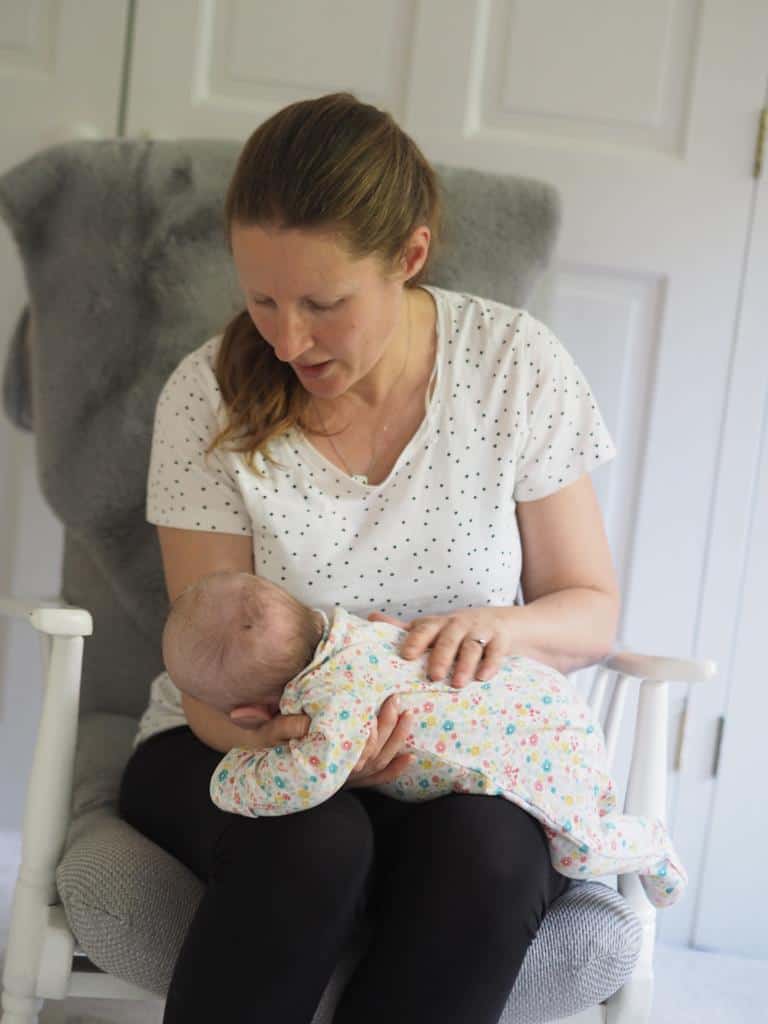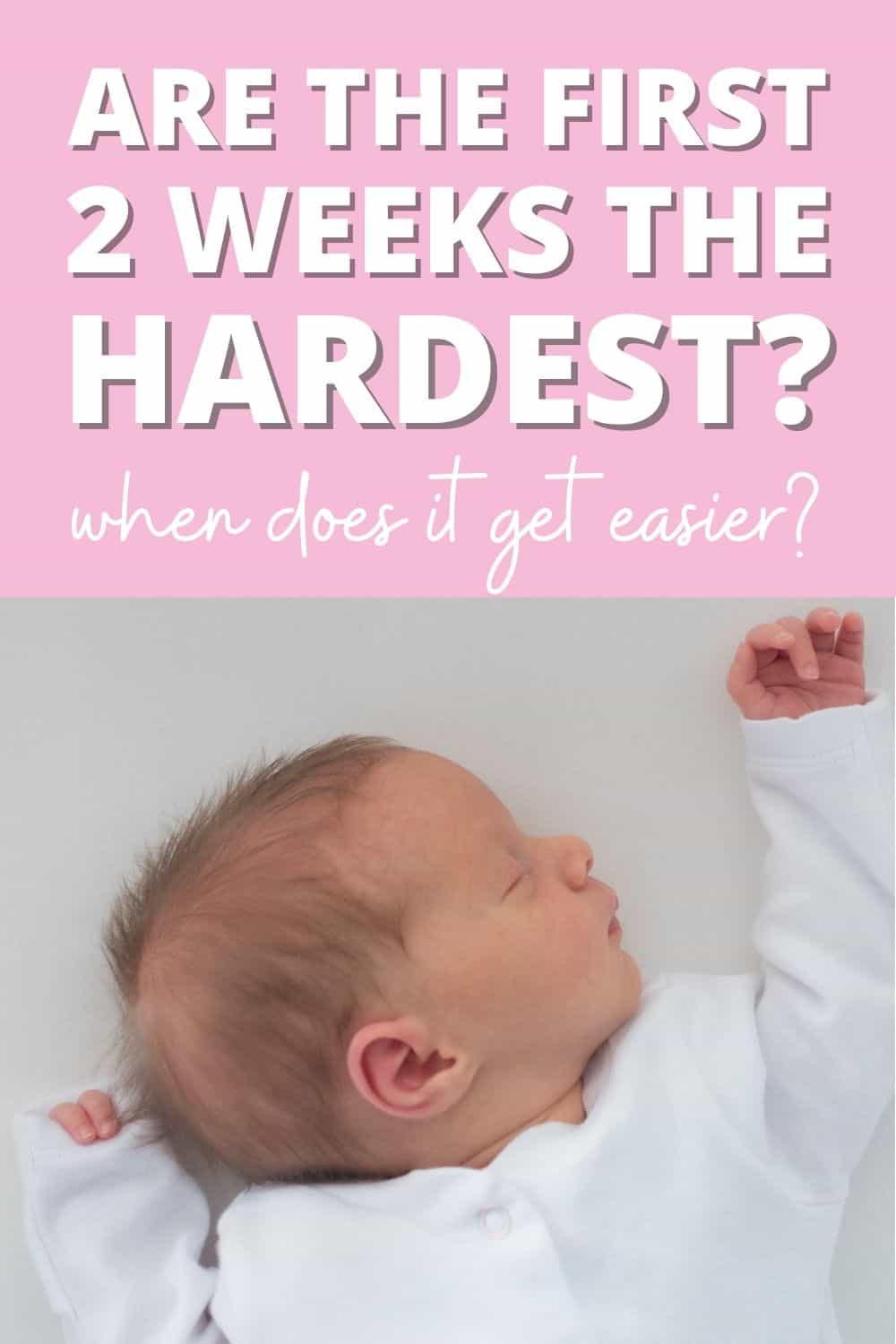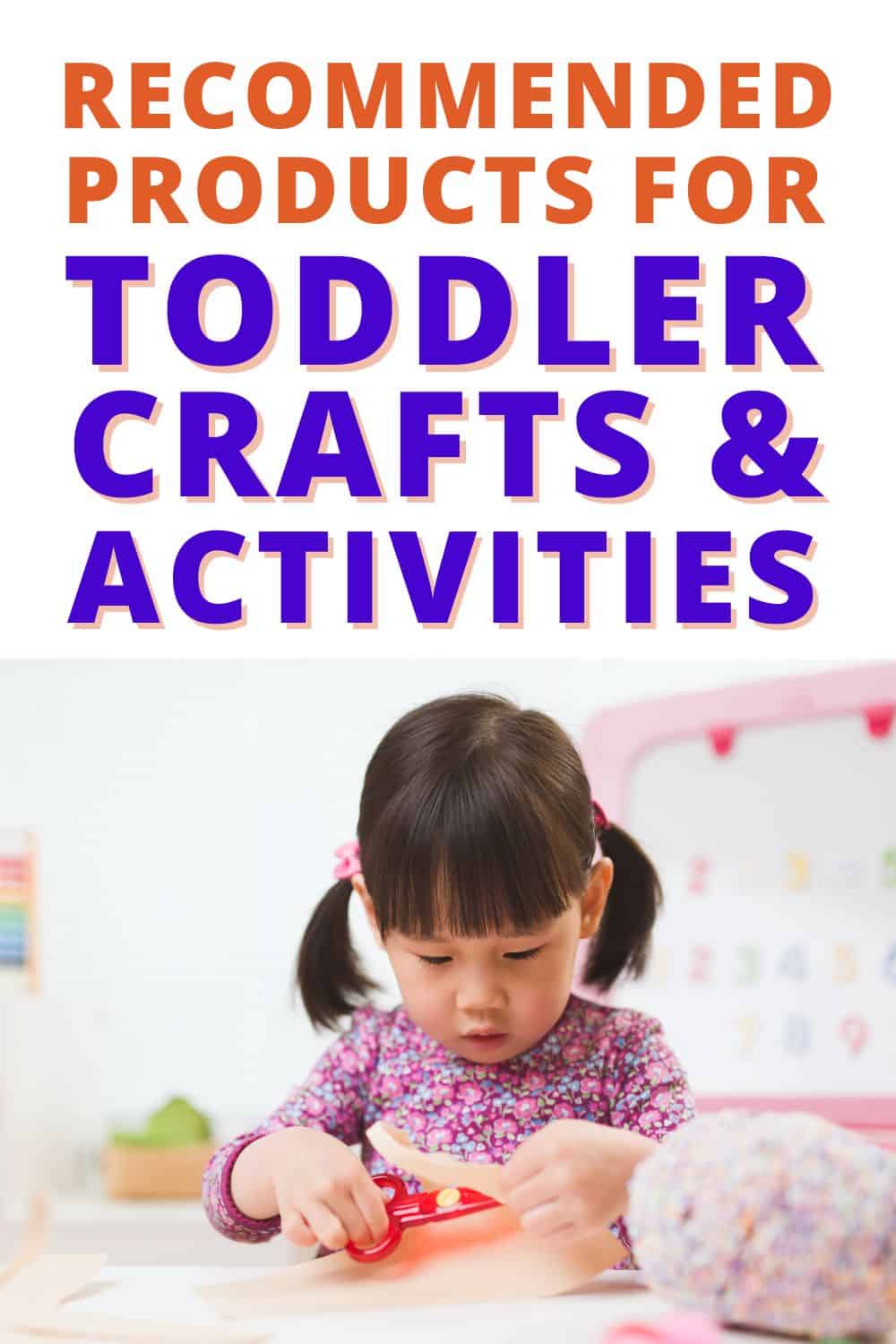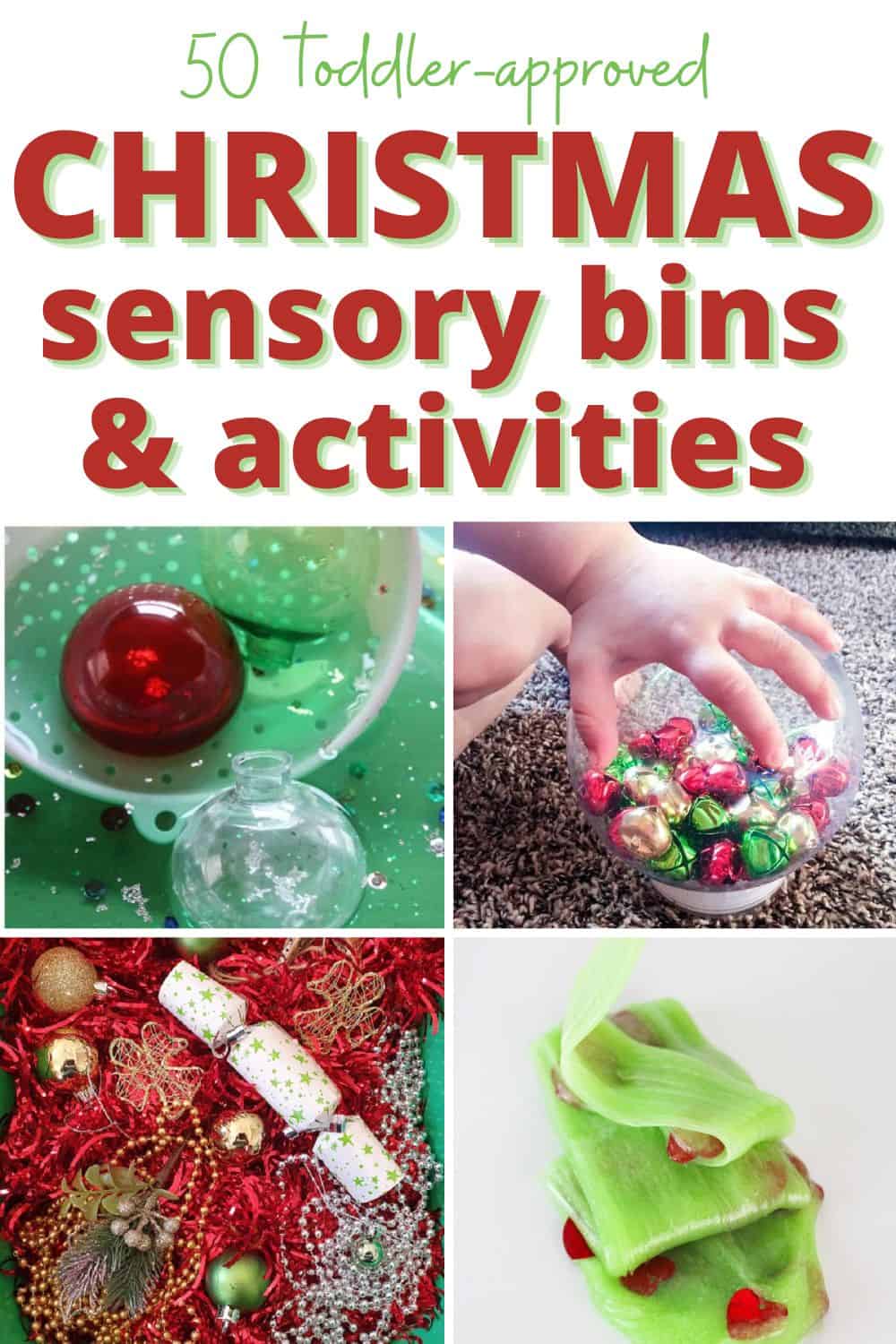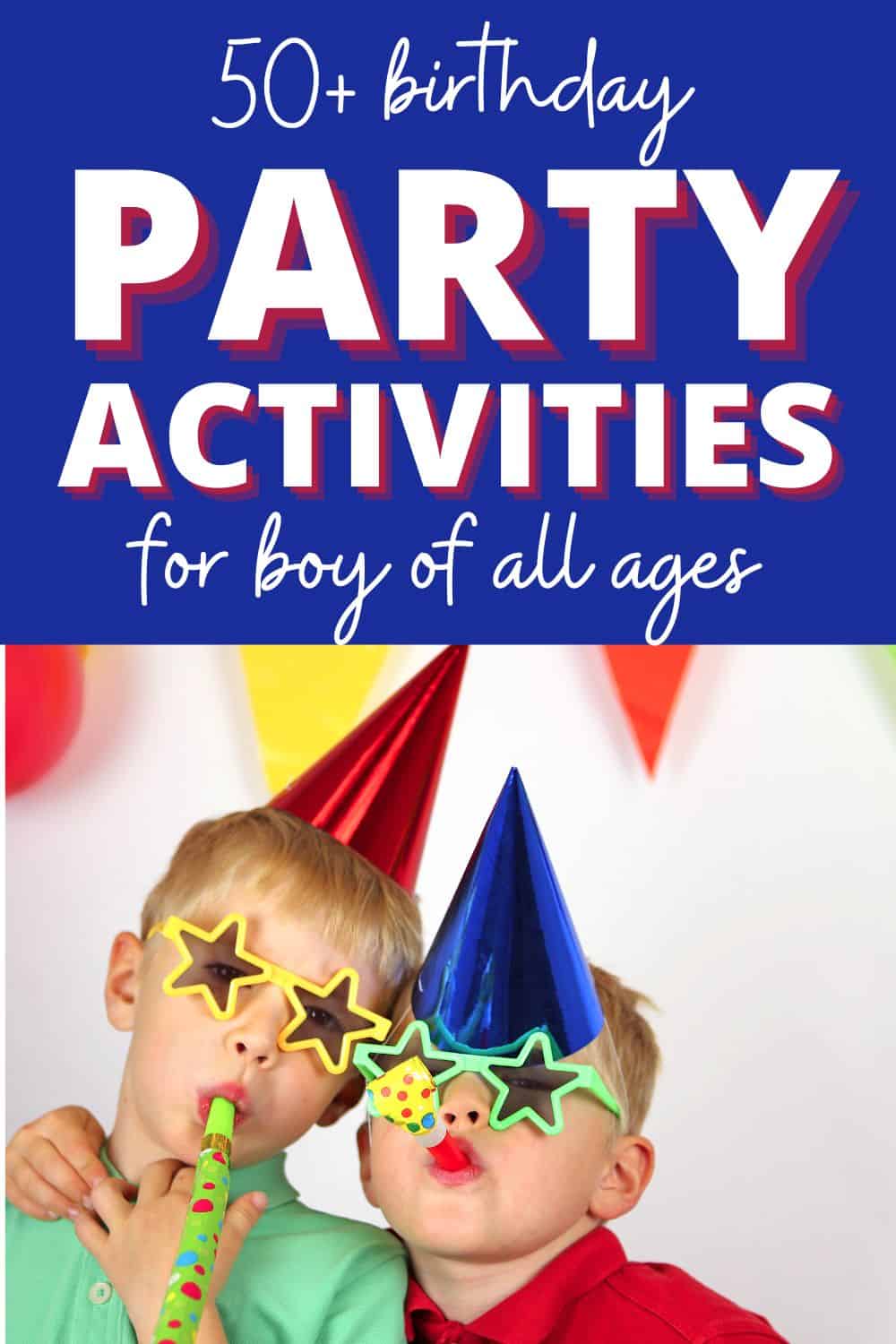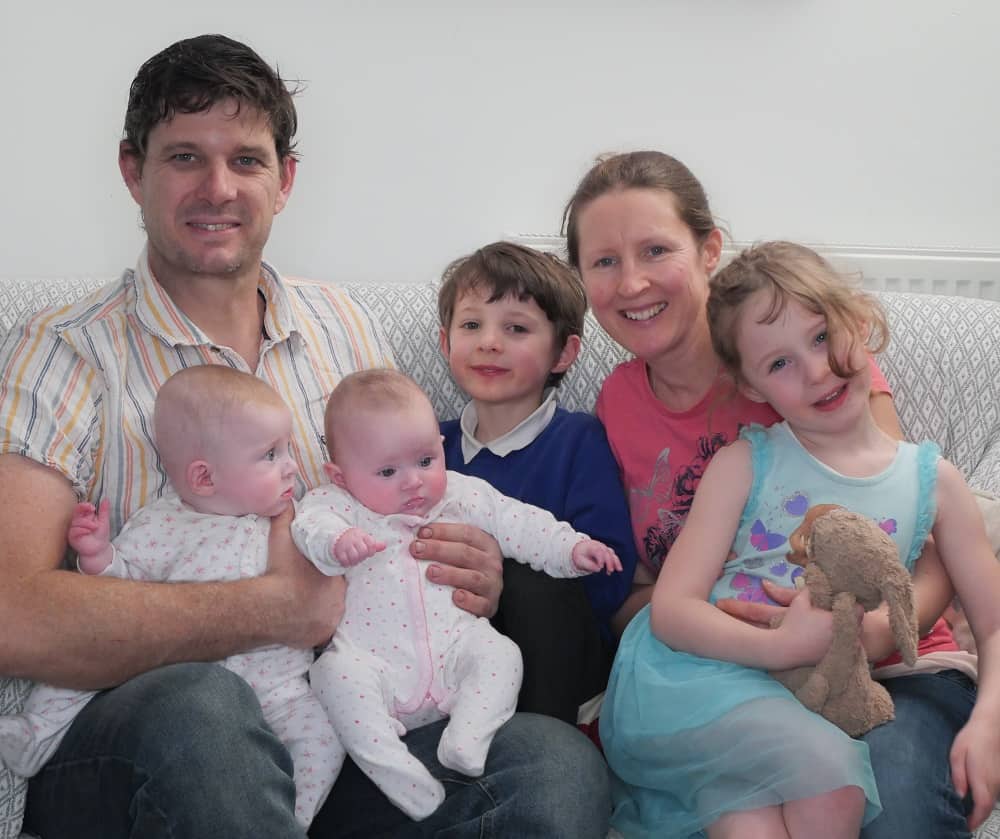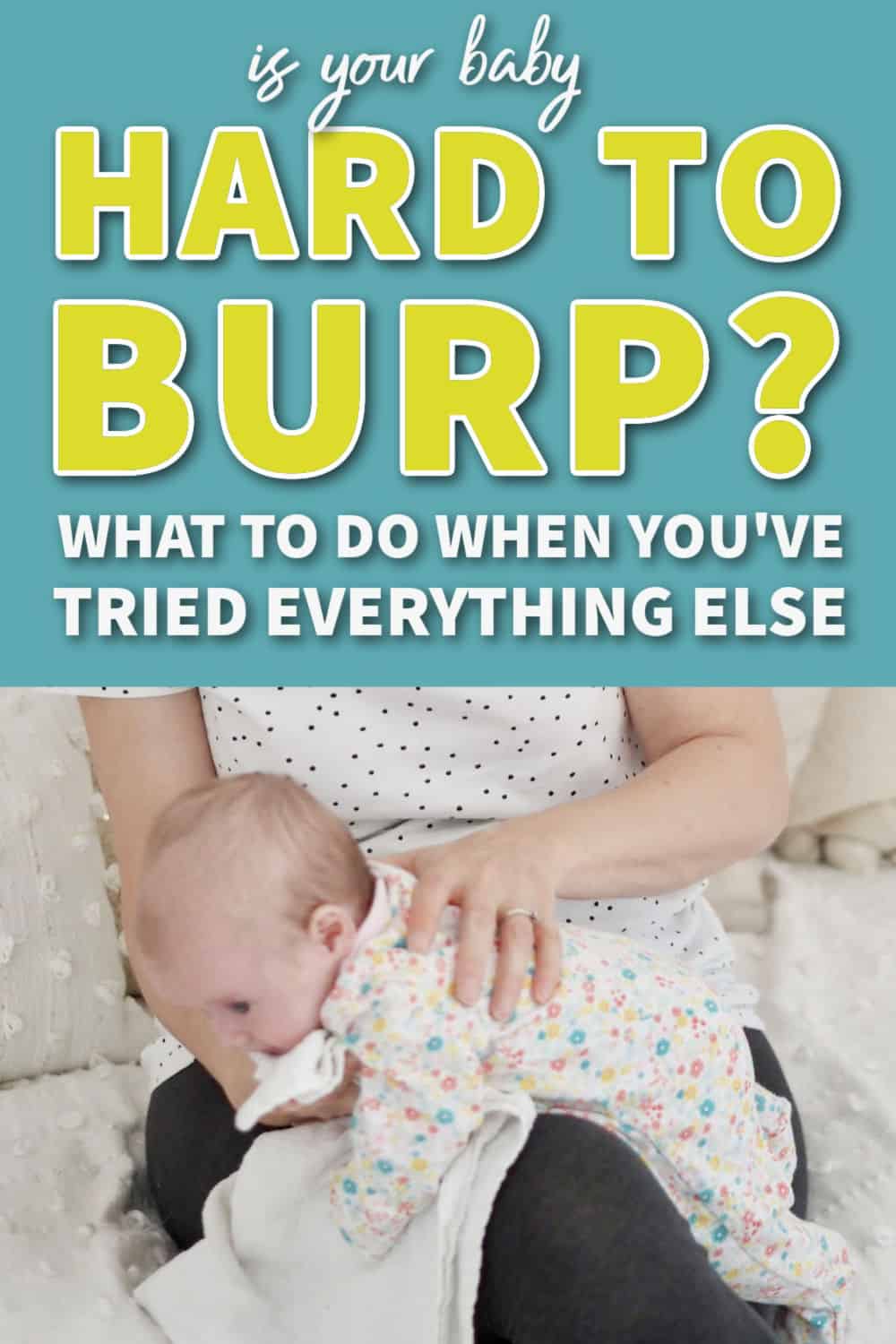The first couple of weeks with a newborn can be hard. If you are feeling this right now and want to know when it gets easier, you are not alone.
Nothing can prepare you for that moment when you arrive home with your newborn baby for the first time. It’s a wonderfully special moment, but it’s also daunting. Let’s be honest, it’s more than daunting, it’s pretty terrifying!
In the first two weeks with your newborn, there’s so much to learn as a new mom. There will no doubt be some anxiety as you learn to look after your baby, you will be sleep deprived and your hormones will be all over the place. Altogether this can lead to a pretty tough few weeks.
So are the first two weeks with a newborn the hardest? Perhaps yes, perhaps no.
We will look into both sides of the coin and give you some tips on how best to navigate this early stage with your new baby.
And if you’re wondering when kids do get easier, that’s something we’ll attempt to answer. Don’t worry, it is before they leave home 🙂
This post contains affiliate links. If you click on one and make a purchase, I may receive a commission at no extra cost to you.
Table of Contents
ToggleWhat to expect the first two weeks with a newborn
Newborns are actually, if you think about it, relatively straightforward. They basically do 3 things – sleep, eat, and poop. Of course, accommodating those needs isn’t necessarily easy, and it takes time to learn your baby’s cues.
What is normal behavior for a newborn those first 2 weeks?
Sleeping
You will find in the first few weeks that your baby essentially sleeps all the time, waking for food, before nodding straight back off again. They may even appear to be asleep when feeding! This is totally normal behavior.
Feeding
Newborn tummies are small so they feed little and often, throughout the day and night. Feeding can be slow so it may feel like you are constantly nursing. It may take them well over 45 minutes to be satisfied. Then they may be hungry and ready to eat again an hour later. This can be exhausting.
Breastfeeding can be one of the biggest challenges for new moms. Even second and third time around, those first few days establishing feeding those first few days with a newborn aren’t all that much easier.
Getting baby to latch properly, experimenting with different positions, your baby suckling night and day milk on tender nipples… it’s so tough!
Crying
Crying is a baby’s way of communicating so although it can be distressing as a new mom, it’s perfectly normal. In time you’ll be able to understand your baby’s different cues and cries.
Why are the first two weeks with a newborn so hard?
Is it normal to struggle with a newborn? The answer is yes, it is totally normal to find the first few weeks hard and to feel overwhelmed and anxious. This is the first time you are doing it on your own without an ‘expert’ readily available at the press of a button. That’s pretty big!
So what makes the first two weeks with a newborn so hard?
It’s all so new and there’s so much to learn
Firstly, give yourself some slack and remember you have never done this before. You may have read every book out there on parenting. You may have held and helped with other people’s babies. But none of that can prepare you for bringing your own new baby home for the first time.
It’s totally normal to worry about everything. Are they too hot, are they too cold, what should they wear to sleep in at night, are they feeding enough, are they pooping enough? The list goes on. All of this stuff, like anything new, takes time to learn.
As you begin to build confidence, relax, and get to grips with things, it does on the whole get easier – I promise! These posts may also help:
- How to hold a newborn in 9 easy ways (inc holds for burping & soothing)
- How To Keep Your Babys Hands Warm At Night (10 Practical Tips)
- Newborns first bath: how to sponge bathe a newborn with umbilical cord still attached
The shock of being totally relied on
Suddenly your needs are pushed to the side, your routine is thrown upside down and you have this little human who is totally reliant on you. That takes a bit of getting used to!
You may have a baby who wants to be held all the time and won’t settle in a bassinet. My first was just like this and it can be frustrating. Try to embrace the cuddles and not worry about all the things you need to do.
Dealing with your emotions
Directly after giving birth, your estrogen and progesterone levels drop dramatically. Essentially this means your emotions will be all over the place during those first two weeks with a newborn.
This can make the anxiety worse, result in mood swings, and make you cry at the drop of a hat. It is an emotional rollercoaster!
Worrying that you don’t love it
Yes, this may be the start of the most amazing journey but that doesn’t mean that you have to love every minute of it. I’ve lost track of the number of people who told me to “enjoy those newborn cuddles” and “they’re small for such a short time”.
With my second born in particular, all I wanted to do was to skip the horribly tricky newborn phase and for them to just be less demanding. Babies are particularly relentless early on.
If this is how you’re feeling, know that it’s normal not to feel elated by your new role as a mother, or your new baby. The last thing you need is to be feeling guilty about a touch of baby blues. (You can read my 4th trimester woes here).
Healing from the birth
Not only are you dealing with this postpartum hormone crash, but you are also recovering from a major ordeal. Whether you had a relatively straightforward vaginal birth or are going through a c-section recovery, you’ll likely feel a bit battered and bruised.
Your muscles will ache, and you may well have stitches to contend with or be recovering from surgery.
So give yourself a break! In any other circumstance, you would be given time to rest, heal and make a full physical recovery. Of course, that’s not easy with a newborn baby. Take your pain medication, line up some support, ask for help, and sleep whenever you can.
More tips to help in your postpartum recovery here.
Exhaustion
Let’s not forget that you’re most likely already suffering from sleep deprivation. I don’t know about you, but I don’t function very well with lack of sleep at the best of times.
So add in the physical exhaustion from childbirth and a newborn baby to look after, and no wonder the first 2 weeks with a newborn are difficult.
Do newborns get easier after 2 weeks?
‘Easy’ is a very subjective word and you don’t hear it often used when talking about children, of any age! There will always be challenges and these will change depending on the age of your baby or child. You will have just navigated a particular set of difficulties, when others pop up.
As you get into more of a rhythm, are becoming more familiar with your baby’s cues and have got the hang of the gazillion new tasks, you may find that life with a newborn is a bit easier after 2 weeks.
You’ve got used to having a baby at home with you and are hopefully beginning to feel physically stronger post-birth.
However, there will be other challenges that arise at this point. Your baby will probably become more alert at around 2 weeks, and not simply sleeping all hours of the day.
Whereas it’s lovely seeing your newborn bright-eyed and gurgling, they also tire easily and are prone to overstimulation. This makes them harder to soothe and settle to sleep. Then there are growth spurts and developmental leaps, which come thick and fast between 2 weeks and 3 months.
Once your newborn is 2 weeks old, your support system and home situation may also change and become more difficult.
For me, I found my husband going back to work after two weeks of paternity leave, really hard. I felt like our newborn bubble had burst, the visitors had petered out and it was just my son and I having to get on with things.
Do babies get fussier after 2 weeks?
You may notice that after the first two weeks your newborn is fussier and more easily unsettled. Overstimulation, overtiredness and growth spurts are normally the reason.
Overtiredness & overstimulation
At around 2 weeks old, your baby will come out of that particularly sleepy stage and become much more aware of what’s going on around them. However, everything is so brand new to them, meaning that almost every little thing they’re exposed to when awake is stimulating in some way.
For this reason, they tire easily. It’s also easy for them to feel overwhelmed by all those new things. After short periods of time awake, young babies quickly become overtired and/or overstimulated.
Overtiredness quickly leads to fussiness, difficulty settling and may even lead to inconsolable crying, or colic. The best way to avoid this is to:
Watch how long your baby’s been awake
60-90 minutes is ample for a tiny newborn and even at 3 months, most babies can only manage 2 hours before needing a nap.
Watch for overtiredness or overstimulation
Keep an eye out for signs that they’ve had enough and need to sleep or be removed from the stimulating environment:
- looking away
- staring into space
- becoming still
- yawning
Learn all the ins and outs of avoiding overtiredness here (including awake time guides by age).

Growth spurts
There are 3 major growth spurts during the newborn phase (the first 3 months) at around 3 weeks, 6 weeks and 12/13 weeks for 3-6 days at a time. You’ll probably notice them because baby will want to eat like crazy and never seem full. This is cluster feeding.
It may seem that your baby is fussy and clingy, uness latched and suckling. This is normal and natural. It’s your baby’s way of getting your body to make more milk, since milk is made on a supply and demand basis.
This is another reason why babies can appear fussier after 2 weeks.
So are the first 2 weeks with a newborn the hardest?
The first two weeks with your new baby are a big adjustment period for your body and mind, as you make the transition to motherhood. However, these first 2 weeks with a newborn are not necessarily the hardest when it comes to your baby.
As a Mom you’ll be recovering from birth, and probably exhausted which can make it tough. However, this is also likely when you have lots of willing helpers around. Dad may be home on paternity leave, you’ll have plenty of visitors, and you’ll be in a little newborn bubble.
In the first two weeks, your baby will sleep a lot. They tend to wake for food before drifting straight off again.
Of course, every baby is different, but many Moms find it’s the first 6 weeks that are the hardest. Particularly once the novelty has worn off, visitors are dying down and Dad is back at work. This often coincides with a more alert baby that tires easily, is more prone to fussiness and colic and harder to settle.
However, the good news is that after this, babies do tend to get easier with time.
Tips for the first 2 weeks with a newborn – to help you survive
So we have established that the first two weeks with a newborn can be really hard. Here are some things you can do to make life easier for yourself:
Accept help from others
Whether it is your partner or a close loved one, make sure you have someone with you who is able to support you and take on some of the baby duties. Or if someone is offering to cook you a meal or do the laundry, accept the offer!
More than ever, you need some uninterrupted sleep and it’s amazing the difference even a short cap nap can make. You may be needed for feeds, but others can do the diaper changes, winding, and cuddling.
Sleep
I know it is a real cliche to say ‘sleep when baby sleeps’ but there is some sense in it, particularly in the early days. The housework can wait! Your focus needs to be on your baby and your recovery. So if you are having sleepless nights, sleep when your baby is asleep during the day.
Lower your standards
Keep expectations low. Don’t push yourself to do too much – some days getting in the shower (and of course looking after a newborn baby) may be all you accomplish, but that’s ok.
Focus on your recovery and your baby. Everything else can wait.
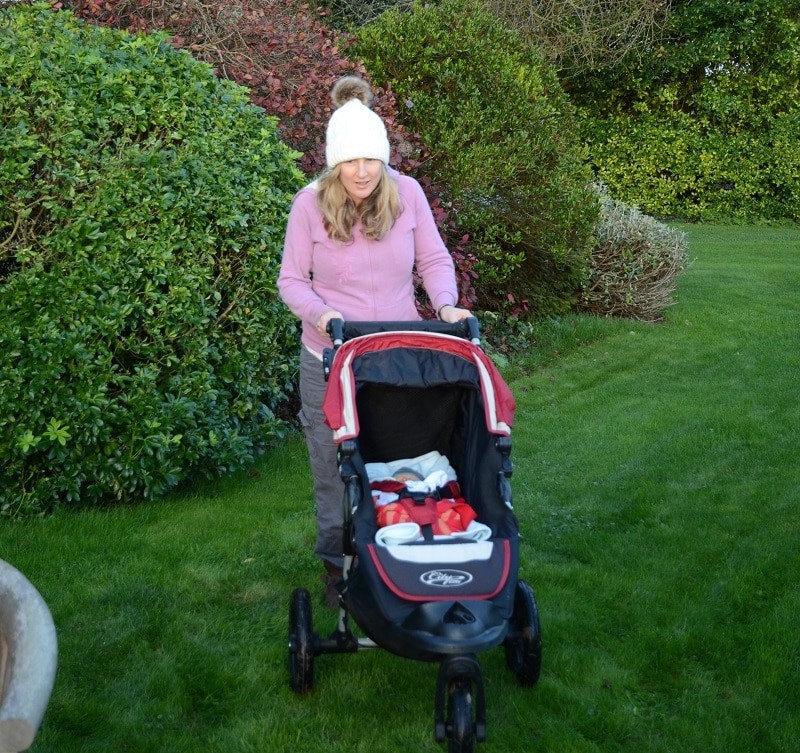
Get out of the house
It’s amazing what a short walk and a little bit of fresh air can do for your mood. So if you are feeling up to it try getting out either with your baby or on your own, if someone else can look after your newborn. Even 10 minutes outside, doing something for yourself really can do wonders.
You may have been told that you shouldn’t take your baby out in the first 6 weeks due to their delicate immune system. I think if anything is going to make those first few weeks even harder, it is being confined to home!
Most health experts agree that there is no reason to keep your baby at home as long as you are sensible about where you take them. Perhaps avoid crowded spaces if you can and make sure you wash your hands regularly.
Of course, also make sure your baby is dressed appropriately for the weather and is protected from the sun if need be.
Remember to start small and slow. The first time you go out, try just getting out into the garden for a few minutes and build from there.
Don’t fret if you don’t love it!
However hard it may feel, in time you will grow your new role. But don’t worry about loving it now. Do what you need to do to get through it.

Don’t panic if your baby cries
One of my biggest worries when bringing my new baby home was they’d cry non-stop and I wouldn’t know what to do.
Firstly, babies can cry quite a bit. It’s their way of telling us that something is wrong. Thankfully, once you’ve learnt to read their more subtle signals and cues, you’ll be able to respond before they reach the point of tears.
Learning your baby’s cues does take a bit of time, but fret not. More often than not, the reason for the crying can be fixed pretty quickly.
During the early days especially, it is most likely that they’re hungry, need to burp or want a cuddle and to be held.
Here’s a handy list of things to check for when your baby starts crying:
- Check your baby’s diaper – a dirty or overly wet diaper can cause your baby discomfort
- Hold your baby and make soothing noises – shushing noises are comforting for your baby
- Burp your baby – trapped wind can make your baby very uncomfortable
- Hold your baby and rock them gently – gentle movement can soothe and settle
- Feed your baby – if the above hasn’t worked then it may be hunger
If your baby has become very upset or seems inconsolable, try these ideas to calm and soothe a crying baby.
Tips for the first 2 weeks to help your newborn

Try swaddling
I’ve been thinking back to when mine were newborns and there was one item in particular that I couldn’t have done without. A swaddle.
The chances are your newborn will sleep better if they are swaddled. Swaddling mimics the close confines of the womb by applying deep pressure touch, in the same way that holding them close in your arms does. So it also helps to soothe and settle baby to sleep as well as help them sleep better.
A snug swaddle also stops their little limbs flailing about the place and and prevents the Moro reflex, often called the startle reflex, from disturbing them. A swaddle beats a sleep sack hands down for a newborn!
For all the ins and outs of swaddling, with free pdf and video tutorials, check out our free swaddle course.
Use a wrap or baby carrier
My second must-have product is a baby wrap or carrier. Babies love to be held, which is why swaddles are so effective. But a baby wrap or carrier means your baby has the warmth and comfort of you close by.
You can carry your baby with just their diaper on, against your bare chest for skin-to-skin contact. This is often called “kangaroo care” and has many benefits for both mom and baby.
It can help tiny babies to regulate their body temperature, breathing and heart rate and is fantastic for bonding as well as for breastfeeding, by helping to build milk supply.
A carrier can also keep your baby upright which can help settle a gassy baby or help wind come up if baby falls asleep without burping.
For all these reasons wraps or carriers are great for settling and soothing. So if you find you cannot put your baby down to sleep in the bassinet, or put them down at all, try one. Your baby will feel cozy and love being close to you, and you’ll be able to get out of the house or get on with whatever you need.
I love this stretchy wrap from Cuddle Bug.
Get breastfeeding fixed early on
What’s important is getting help early on if you need. Hopefully, you had some help with your latch and positioning before you left the hospital. Making sure you get a good latch every time is vital and one of The 5 Rules For Breastfeeding.
It really is the difference between a happy contented baby and a hungry and fussy baby.
You may find breastfeeding uncomfortable for 24 hours or so after your milk comes in, 2-5 days postpartum. Your breasts will most likely be engorged making them feel hard, tight, and sometimes painful.
Keep feeding your baby regularly and this soon settles down. And have some icepacks on hand – they really helped me!
You may also feel discomfort at the start of each nursing session. You’re baby may latch with a vengeance and make your eyes water – that’s your baby stimulating your milk to ‘let down’. But once flowing and your baby is happily nursing it shouldn’t be uncomfortable and certainly shouldn’t hurt.
If it does hurt, check your latch and start again. I learned this the hard way with my first. Needless to say with my second, I ensured I had the correct latch from day one.
If you’re struggling with latch or anything else related to nursing, don’t be afraid of getting help from a breastfeeding consultant.
Don’t underestimate the power of burping!
Your baby will be naturally gassy since the digestive systems is underdeveloped at birth. When babies eat they suck in extra air, particularly when bottle feeding. And they aren’t good at passing this trapped wind without help.
For this reason, gas is often a reason for excessive crying, colic and infant reflux. (There are many other factors that may cause these too.) A windy baby will also struggle to settle to sleep and/or sleep only short periods.
So the key is to burp baby both during and after a feed and if you’re going to count, aim for double figures. It’s also preferable to burp before they fall asleep, so that trapped wind doesn’t disturb and wake them.
The best technique for burping is to apply gentle pressure on baby’s abdomen and rub the back firmly in a circular motion. This is preferable to patting, which can break down large air bubbles into smaller ones making them harder to pass.
The video below has a good demo.
All about burping and tips for hard to burp babies here.
Wake baby up for feeds in the day
You may have heard that you should ‘never wake a sleeping baby’. This is an old-fashioned myth. You want baby to feed at least every 2-3 hours, day and night. Don’t let baby go longer than 3 hours without eating. So wake your newborn up.
‘3 hours’ is from the beginning of one feed to the beginning of the next. So if baby started a feed at 9 am, finished feeding at 10 am, another feed will be due no later than 12 o’clock.
Once your newborn is gaining weight, has exceeded their birth weight and you’ve had the go-ahead from your pediatrician, continue to wake baby in the day, every 2-3 hours to eat. Then let baby wake naturally at night.
This helps to maximize milk intake in the day, meaning that, in time baby should be able to do longer stretches between feeds at night.
After the first two weeks, your newborn should start to have short periods of time awake. Of course, you want this to be in the day, not at night.
If baby sleeps all day they may not be tired enough to sleep all night. In addition, they won’t be drinking enough milk in the day and will wake more often due to hunger.
So wake them to eat in the day and encourage a short period of activity afterwards, while keeping night feeds quiet and boring, with the lights low.
More tips on fixing day night confusion here.
For more tips and hacks for the newborn phase, check out these newborn hacks for first time parents.
Which are the hardest weeks with a newborn?
In general, babies get easier the older they get. My experience is that the first two weeks with a newborn aren’t in fact the hardest. Rather the following few weeks are, with endless growth spurts and cluster feeding and baby easily overstimulated and overtired.
This often means newborns are at their most unsettled between 2 and 6 weeks. Colic can rear it’s ugly head at around 3 weeks and is reportedly at its worst at around the 6 week mark, at which point it normally eases.
Amongst all that, you’re trying to figure everything out on broken sleep while still recovering physically. It’s all pretty major stuff!
So, the general consensus is that although the first two weeks with a newborn are hard, it’s the first 6 weeks that are the hardest. This was certainly true for me with all 4 of mine.
Of course, all babies are different and it may also depend on your circumstances too.
So when does life with a newborn get better?
Life with a baby does get easier. It won’t be long before your baby is hitting those major milestones like smiling, sitting up, eating solids and crawling and you’ll start to enjoy your baby more.
Although you’ll probably never believe this right now, before you know it you’ll be wishing for time to slow down.
But when does this ‘easier’ phase start?
When your baby can go longer in between feeds
And as a baby grows so do their tummies, meaning they won’t need to eat so frequently. This means you get a little respite in the day and, hopefully, you’ll see a reduction in night feedings, which makes a big difference.
When your baby starts to smile
By around 6 weeks you’ll start to see a hint of a genuine smile, particularly in reaction to seeing you. This is a pretty amazing feeling!
As well as this, you’ll start getting more interaction from your baby. Whilst this doesn’t totally negate the exhaustion, it does help and makes it all feel worthwhile.
When your baby grows out of the Moro Reflex
The Moro Reflex, or Startle Reflex as it is often known, can be very frustrating if it is causing your baby to wake frequently. Thankfully it doesn’t last too long and by about 6 weeks it will begin to disappear.
In the meantime, swaddling really will help.
When baby sleeps through the night
If you’ve been up 10 times a night since your baby was born, not getting up at all may seem like an absolute impossibility. But it may be sooner than you think that your baby sleeps through. All 4 of my babies slept through from 11 pm to 7 am between the age sof 3 and 4.5 months.
A few baby sleep tips have already been mentioned above, like swaddling and waking baby in the day. Check out the full list of baby sleep strategies here.
When your new life becomes the norm
It is safe to say that life is never going to be the same as it was pre-baby and that takes some adjustment. But you’ll soon find yourself getting into a new rhythm, and doing things again that you enjoyed before your life was turned upside down.
You’ll start getting out of the house more, perhaps going to meet friends for a coffee or go for a run or get back into a previously loved sport. You’ll start cooking again, maybe even read a couple of pages of a book without falling asleep!
Hopefully, in time, you’ll also feel confident to leave your baby with your partner, friend or family member for an evening or a for a longer period in the day.
Life will settle down just in a different kind of way.
The first two weeks with a newborn are undoubtedly hard!
The adjustment to parenthood isn’t totally straightforward. The first few weeks with your new baby are tough. Those first 2 weeks with a newborn may be the hardest.
However, it’s likely to get a little tougher before it gets easier.
Hang on in there.
Be kind to yourself. You’re on a massive learning curve and the adjustment is huge. Try to cherish those newborn cuddles and special moments. But equally, don’t feel guilty if you’re finding it so tough you’re wishing the time away.
However you feel, know that the newborn stage won’t last for long. Before you know it, you’ll have moved on to the next exciting, yet challenging stage.








